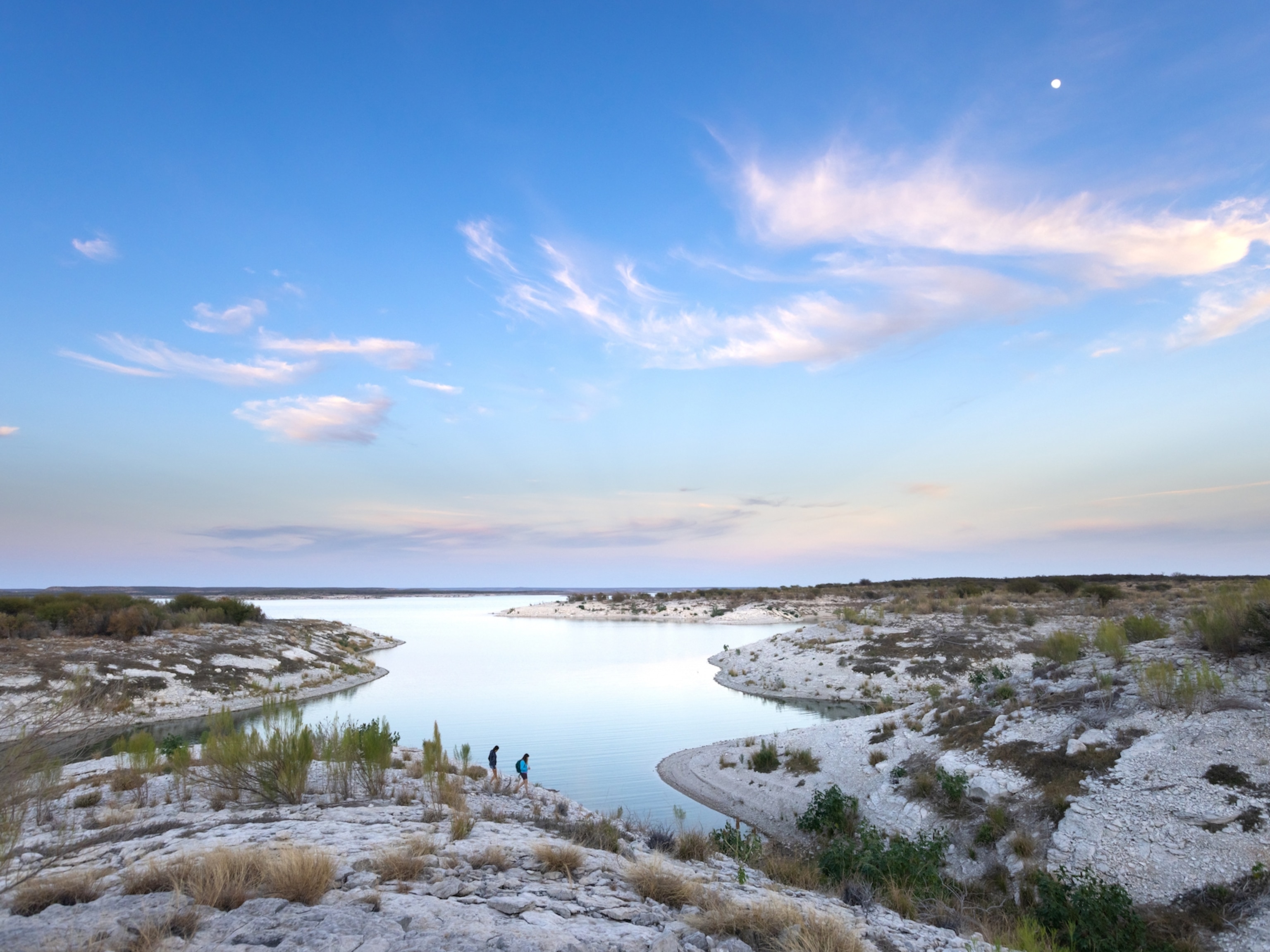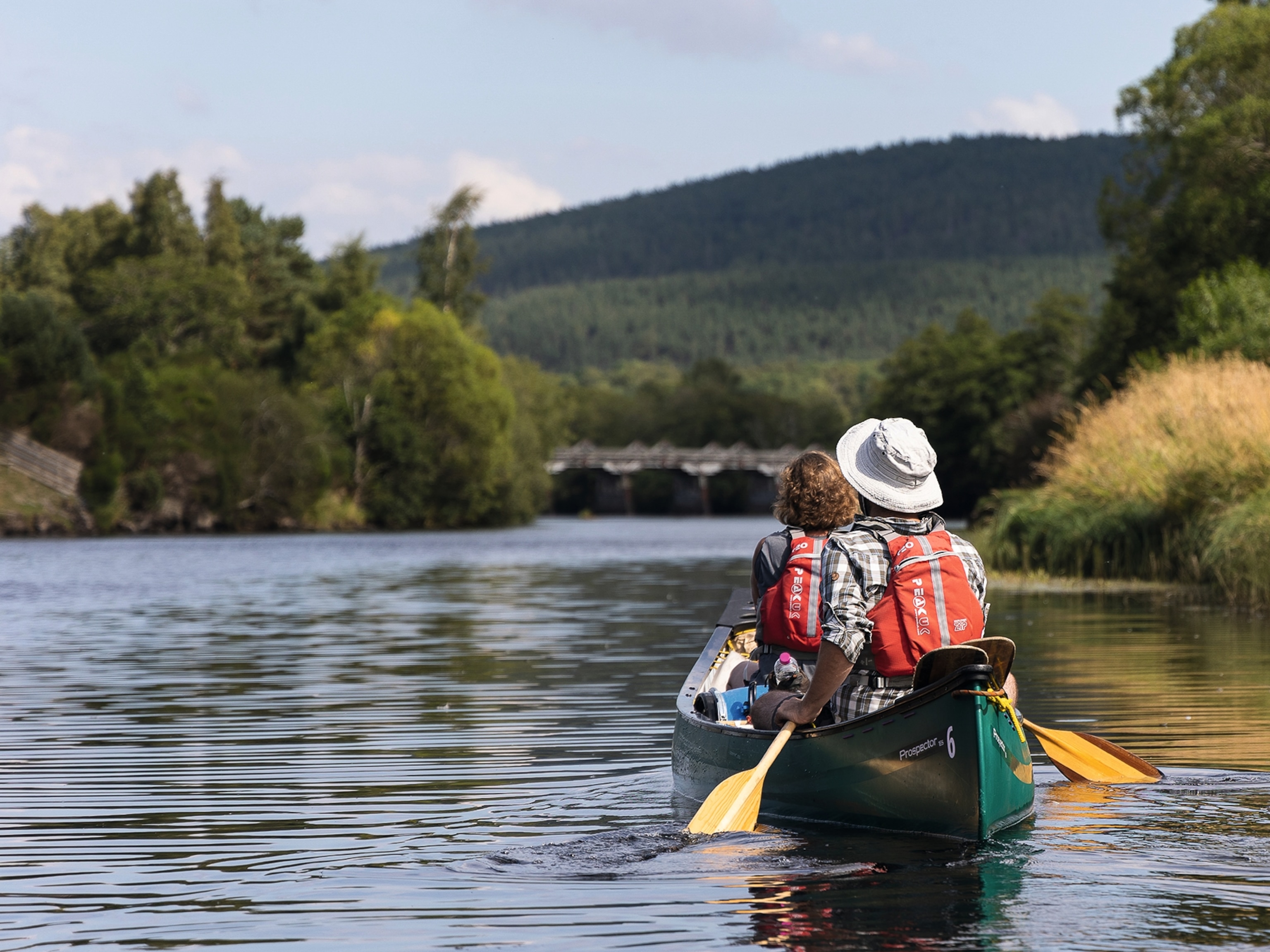
Summer at the Lake
From the June/July 2012 issue of National Geographic Traveler
I’m a lake person.
Show me a map and I’ll start searching for the blue spots. Show me a dock, overlooking an expanse of blue, and—with suit or without—I have to dive in. When I’m at a lake, I’m happy. When I’m not at a lake, I think about being there.
We are a different breed, those of us who choose fresh water. Perhaps, the choice of a lake over an ocean has to do with the seriousness of a person’s swimming aspirations. (Oceans are for dipping. Lakes are for crossing, if you can.) But there’s more to what separates the two experiences: Where ocean vistas speak of drama and turbulence, a lake—unless the Jet Skiers have got to it—is a tranquil place most of the time. Oceans are for sharks and dolphins. Lakes are for trout and bass. Oceans are for liners and sailing vessels tossing over the waves. Lakes are for birchbark canoes and trim wooden Chris-Crafts named after somebody’s mother, with a flag on the back and a humming inboard motor taking you to a neighbor’s dock for a cookout at sunset. Look out onto a lake, and you often can see the other side. Maybe that’s part of what I like: that it’s enclosed. A little world, sealed off from the rest.
I’ve probably dived into a hundred lakes in my lifetime—in Washington, Michigan, Connecticut, Canada, and beyond. My heartbeat elevates at the sight of a sign on the road signaling a turnoff ahead that leads to a lake. Too often these days, they’re so developed it’s hard to see the water through the condominiums, but I’m always on the lookout for a good lake, and over my half century of pursuit, I’ve found a few.
Because I’m a native of New Hampshire, it’s always that state’s lakes that call to me most powerfully. Sixteen years after I moved from there to the coast of California, I still return faithfully to New England every July to see friends and my daughter who lives there. And I go to dip myself in the waters of the lakes I’ve loved—Dublin Lake, Willard Pond, and Skatutakee, near the perfect village of Harrisville—my own particular form of annual baptism.
I can no more name a favorite among bodies of water I have loved than I can choose a favorite among my children. But there is one that stands out, in memory, as the one that served as the setting for my quintessential summertime lake experience. It was 1985, and that weekend remains fixed in my mind.
I was married then—a young mother in my early 30s, with three small children, ages seven, three, and not yet two. Most days that summer—and for many that followed—my lake life was conducted at a man-made lake named for New Hampshire’s one U.S. president, Franklin Pierce. It was a spot where the town mothers brought their children for swimming lessons and stayed all day camped out with beach towels and buckets and, in my case, a well-worn copy of Anna Karenina I’d been hauling around for two summers.
But that day seemed to call out for larger adventure, so we headed north up the highway to the town of Holderness, in Grafton County, and the lake that remains, even now—27 years later—possibly the most pristine I’ve ever encountered: Squam Lake. (It’s two lakes, actually: Big Squam and Little Squam, connected by a narrow channel. Back in 1980, when they filmed a movie there with Henry Fonda and Katharine Hepburn, they called it Golden Pond.)
A few fortunate people own old family cottages on the shores of Squam Lake, but we were not among them. Instead, we’d arranged to meet a friend and his children along the shore, with the idea of canoeing out to an island where—if you plan ahead—you can pitch a tent and camp out, even today. For my money, those campsites are the best real estate on the lake.
At the time, no doubt, it was hard gathering up all those children, all that gear—the fire- wood, groceries, and sleeping bags. But I remember none of that now. What stays with me, after all the rest has melted away, was how the light landed on the water as the sun went down, and then the glow of the campfire. After we put the children to sleep in their tents, we sat again by the embers, with no sound from any other human being and no need for conversation, just the night sky spread out above us, the stars as clear as I’d ever known them. From the water came a low and haunting sound, like a heartbroken lover calling out to an absent mate: the cry of a loon. And a moment later, the call of another loon answering back.
We woke to a perfect rose-colored sunrise and the sound of jumping fish. I lit the fire, boiled water for the coffee, ladled pancake batter on the griddle, and—though I knew it would be cold—I took my swim. Alone, I could hear only the sound of water lapping with each stroke. It is a feeling of tranquillity like no other. Back at camp, the children, sticky with maple syrup, searched for bugs and tossed stones in the water. There was no need of diversions more elaborate than that, with a lake on all sides and blueberries in the bushes.
When I was the age of my daughter that day (seven), my father taught me a poem by William Butler Yeats. It was a practice he maintained throughout my childhood, of sitting on the side of my bed when he said good night and reciting a poem, enough times that I’d learn it eventually. The one that has stayed with me best is “The Lake Isle of Innisfree.” One stanza comes to me without fail whenever I am near enough to a lake that I can hear the water:
I will arise and go now, for always night and day
I hear lake water lapping with low sounds by the shore;
While I stand on the roadway, or on the pavements grey,
I hear it in the deep heart’s core.
This is true for me. Even on the road I hear it. Even on the pavement. I hear lake water lapping in my deep heart’s core.
You May Also Like
Go Further
Animals
- This ‘saber-toothed’ salmon wasn’t quite what we thoughtThis ‘saber-toothed’ salmon wasn’t quite what we thought
- Why this rhino-zebra friendship makes perfect senseWhy this rhino-zebra friendship makes perfect sense
- When did bioluminescence evolve? It’s older than we thought.When did bioluminescence evolve? It’s older than we thought.
- Soy, skim … spider. Are any of these technically milk?Soy, skim … spider. Are any of these technically milk?
- This pristine piece of the Amazon shows nature’s resilienceThis pristine piece of the Amazon shows nature’s resilience
Environment
- This pristine piece of the Amazon shows nature’s resilienceThis pristine piece of the Amazon shows nature’s resilience
- Listen to 30 years of climate change transformed into haunting musicListen to 30 years of climate change transformed into haunting music
- This ancient society tried to stop El Niño—with child sacrificeThis ancient society tried to stop El Niño—with child sacrifice
- U.S. plans to clean its drinking water. What does that mean?U.S. plans to clean its drinking water. What does that mean?
History & Culture
- Meet the original members of the tortured poets departmentMeet the original members of the tortured poets department
- Séances at the White House? Why these first ladies turned to the occultSéances at the White House? Why these first ladies turned to the occult
- Gambling is everywhere now. When is that a problem?Gambling is everywhere now. When is that a problem?
- Beauty is pain—at least it was in 17th-century SpainBeauty is pain—at least it was in 17th-century Spain
- The real spies who inspired ‘The Ministry of Ungentlemanly Warfare’The real spies who inspired ‘The Ministry of Ungentlemanly Warfare’
Science
- Here's how astronomers found one of the rarest phenomenons in spaceHere's how astronomers found one of the rarest phenomenons in space
- Not an extrovert or introvert? There’s a word for that.Not an extrovert or introvert? There’s a word for that.
- NASA has a plan to clean up space junk—but is going green enough?NASA has a plan to clean up space junk—but is going green enough?
- Soy, skim … spider. Are any of these technically milk?Soy, skim … spider. Are any of these technically milk?
Travel
- What it's like to hike the Camino del Mayab in MexicoWhat it's like to hike the Camino del Mayab in Mexico
- Is this small English town Yorkshire's culinary capital?Is this small English town Yorkshire's culinary capital?
- This chef is taking Indian cuisine in a bold new directionThis chef is taking Indian cuisine in a bold new direction






